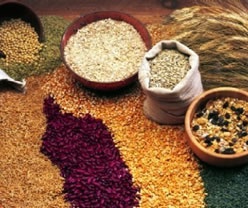Farmers in the Upper East Region have raised concerns that the government's recent directive to ban the export of grains may not adequately address the challenges posed by the ongoing dry spell affecting agricultural activities in the area.
They argue that the ban alone is insufficient without additional pragmatic measures from the government to reduce production costs and ensure fair prices for their produce.
Robert Kwame Abokah, a commercial rice farmer from Navrongo, shared his frustrations in an interview with Class 91.3 FM’s reporter Moses Appiah.
He highlighted the challenges farmers face, noting that their primary buyers are traders from Burkina Faso and Niger who typically arrive with cash and are willing to pay the farmers realistic prices.
"If only the government could buy our products," Mr. Abokah said.
"These traders usually come with cash and will accept any price tag we offer them, so as a farmer, I'll be looking at how I can make a profit.
The government needs to offer practical support, not just promises on paper, as it usually does."
Mr. Abokah criticized the government's past promises of support, such as initiatives to bring in aggregators to purchase surplus rice.
He recalled how, three years ago, farmers in the region faced significant post-harvest losses despite assurances from officials.
“We went to the media to highlight our bumper harvest and the post-harvest losses we were experiencing.
Despite speaking up repeatedly, and even after a buffer stock official promised that aggregators would come to buy up the rice and other produce, little was done,” he recounted.
Abokah stressed that simply banning grain exports will not solve the deeper issues unless the government implements a comprehensive strategy for purchasing and managing local produce effectively.
Click to view details



Business News of Thursday, 29 August 2024
Source: classfmonline.com
We get fair prices from foreign buyers - Farmers to government
 Farn produce
Farn produce
















